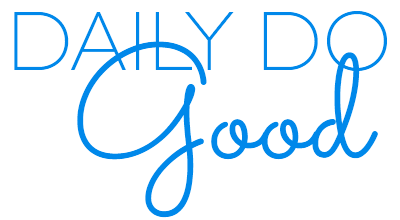Black Swan Academy:
The Rule, Not the Exception
Samantha Davis founded the Black Swan Academy in 2013 with a principal goal in mind: Making the exception the rule.
While Samantha was in graduate school researching social issues within the black community, her cousin Tyrell Swan graduated high school at the top of his class with a full ride to college. Tyrell had grown up the son of a teenage mother in a low-income household; his father was murdered when he was two months old.
“Tyrell came from a background where, statistically, he was more likely to be imprisoned than to graduate high school,” Samantha said, “and I thought if he could do it, why couldn’t others?”
Davis’s goal in creating the organization was to target underserved African-American youth and instill in them a sense of pride, purpose and power. This desire was strengthened by the not-guilty verdict in the George Zimmerman trial that occurred at around the same time period as Tyrell’s graduation.
“I was filled with such hurt and rage, and I kept thinking that what happened to Trayvon (Martin) could have so easily happened to him. I was now wondering what my role was in helping to close the opportunity gap for black youth.”
The inspiration for the organization in place, Black Swan was founded soon thereafter in order to promote civic engagement of black youth in the DC area.
The current mission of Black Swan Academy is “to empower black youth in under-served communities through civic learning and engagement, giving them a comprehensive set of tools needed to succeed in life and become active social catalysts in their communities.”
Today, Black Swan Academy operates its school-based programs solely in the southeast area of DC, but Samantha has long-term plans to expand beyond the quadrant to other areas of the city and Prince George’s County in Maryland.
The non-profit has partnered with a number of other community-based organizations in the DC area, such as the Greater Washington Urban League and Boys & Girls Clubs of Greater Washington. By continuing to reach and impact African-American youth about their own importance and value, the Black Swan Academy hopes to change the public’s mind to no longer see successful African-Americans as the exception, but rather as the rule.
THE PROGRAMS
Black Swan Academy operates both an after-school program for middle school students and a youth civic leadership program for high school students in the Southeast area of DC. The middle school students are taught a curriculum that emphasizes community engagement and leadership, as well as the value of their own potential and ability to make an impact.
Students are brought together in groups and asked to identify a problem they see in their school and neighborhoods and work to address it through community service. This year, middle school students chose to focus on homelessness. They hosted a Winter Clothing Drive to collect clothing to give to those in need.
Currently, 20 juniors and seniors from Southeast DC high schools are involved in the youth civic leadership program, which involves professional and personal development workshops and volunteering as mentors for the middle-school students twice a week.
The BSA website states: “Civic engagement has the power to change not only an individual’s life outcomes but also the communities in which they live. The level of civic knowledge and engagement obtained by one person has been linked to economic growth within the community and an increase of positive life outcomes for civic individuals.”
In the short-term, Black Swan Academy’s main goal is to build a deeper and longer-lasting relationship with its current students.
“We want to increase their cumulative GPA’s, get them to attend school more often, and better their social and emotional development,” said founder Samantha Davis. Looking past the middle school years, Davis wants to see an increase in the number of students who graduate high school and go to college.
“I would love to see an increase in black civic leaders in every sector, who can come back and lead others in the community to have a civic mindset as well.”
Meet a Black Swan Academy Student
Aniya, a middle school student in Southeast DC, recently won first place in a youth essay contest for her essay on what “home” meant to her. She read her essay out loud at a recent Housing For All rally in the city. Here, Aniya answers some questions from DDG writer Marisa Weidner.
Photo courtesy of Black Swan Academy
How did you get involved in Black Swan Academy?
My teacher told me it was a program to help uplift younger students, where we would talk about life and the things we see around us.
What types of activities do you do?
There is a set curriculum on Tuesdays, and we play fun games and do educational activities. We learn about the sections on power, purpose and pride. Power is my favorite because it’s all about your own strength and the power you have inside of you to succeed. It’s fun to learn about the different “P” words.
What is your favorite activity that you’ve been involved with through Black Swan?
e go on field trips and once we got to go canoeing which was a lot of fun. We also had a Youth Town Hall after Ferguson to talk about what we were feeling after everything that had happened.
About the Author: Marisa Weidner is a graduate of The College of William and Mary. She has volunteered as a teacher in Belize, and in homeless shelters in the United States. Marisa chronicles her explorations of DC on her blog, The Curated City.







